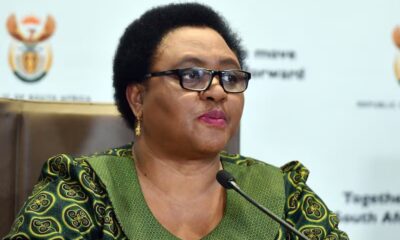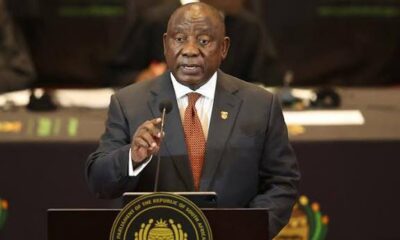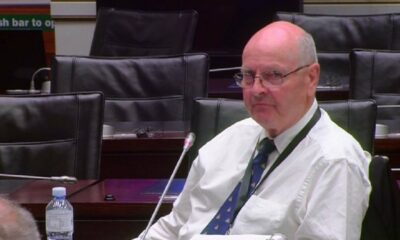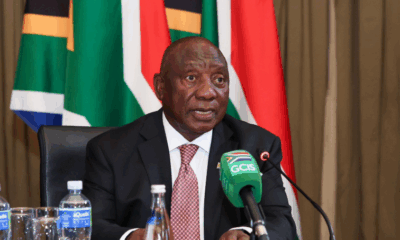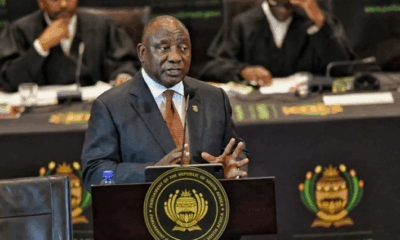News
Clear Skies Ahead for South Africa’s 2025 Budget After DA Backs Appropriation Bill
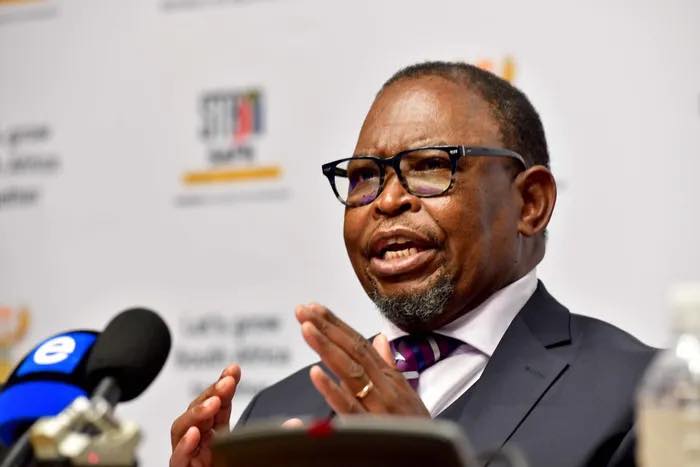
South Africa’s turbulent 2025 budget saga appears to be heading for resolution, with the Democratic Alliance (DA) confirming it will vote in favour of the Appropriation Bill in Parliament on Wednesday, 23 July.
This breakthrough comes after President Cyril Ramaphosa dismissed Higher Education Minister Nobuhle Nkabane, a key demand from the DA, whose leader John Steenhuisen had earlier threatened to block the budget vote and lodge a motion of no confidence in the President.
The Appropriation Bill, a cornerstone of South Africa’s budget process, authorises government spending across departments and public entities. It works alongside the Division of Revenue Bill to ensure provinces and municipalities receive their allocated funds.
Ramaphosa’s Concession Wins Over DA
The bill’s passage had been in jeopardy following Ramaphosa’s earlier dismissal of DA Deputy Minister Andrew Whitfield over an unauthorised US trip, prompting Steenhuisen to withdraw from the National Dialogue and withhold support for any ANC-led budget votes involving tainted ministers.
But the tides turned when Ramaphosa dismissed Nkabane on 21 July, amid controversy over her role in questionable SETA board appointments tied to ANC loyalists. The DA had filed fraud charges against Nkabane and brought a complaint before Parliament’s Ethics Committee, demanding accountability.
“The DA acted in the national interest when we passed the Division of Revenue Bill to enable provinces and municipalities to continue to receive funding,” Steenhuisen said. “We will now pass the Appropriation Bill in the national interest following the President’s actions.”
With the DA’s 87 votes and the ANC’s 159 in the 400-seat National Assembly, the bill is now expected to pass comfortably.
Budget Battle: From VAT Hikes to Fuel Levy Compromise
The 2025 budget process has been anything but smooth. Initially tabled in February, it was delayed over a controversial proposed 2% VAT increase, opposed fiercely by the DA and several coalition partners in the newly formed Government of National Unity (GNU).
A second version of the budget in March lowered the VAT hike to 0.5%, but still faced strong resistance and legal challenges.
Eventually, a compromise was reached in May. Finance Minister Enoch Godongwana scrapped the VAT increase entirely and replaced it with a hike in the fuel levy. This revision gained cautious support across the GNU and other opposition parties.
Steenhuisen: “This Is Just the Beginning”
While praising Ramaphosa’s move to remove Nkabane, Steenhuisen warned that it must not be seen as a one-off gesture.
“This must be the beginning, not the end,” he said. “There are still individuals in the Executive facing serious allegations. If the President is serious about restoring public trust, he must act decisively and consistently—not only when under pressure.”
Steenhuisen also reminded the ANC that the era of unilateral rule is over.
“The ANC must accept that it no longer governs alone… In a coalition, meaningful consultation with partners is not optional,” he said.
As South Africa’s first GNU budget navigates rough political waters, the DA’s decision signals temporary stability, but also a clear message: accountability is now the price of collaboration.
{Source: BusinessTech}
Follow Joburg ETC on Facebook, Twitter , TikTok and Instagram
For more News in Johannesburg, visit joburgetc.com

